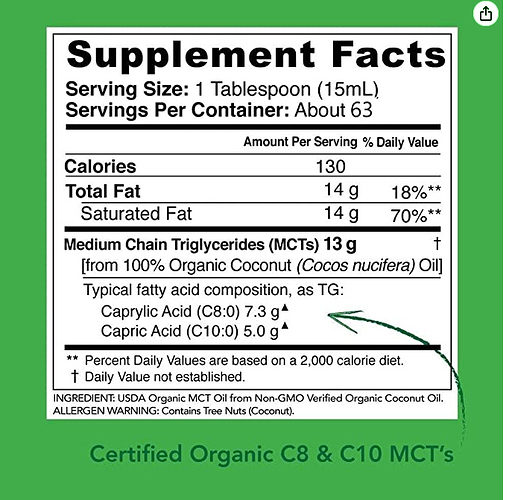This may be a very stupid question, I really have no idea how fats work. I know that people say coconut oil and MCT fats go straight to the brain. Ive read fats are made up of single, double, and triple bonds. Is there a difference when it comes to saturated vs polyunsaturated vs monounsaturated for quickness of energy? Take for example avocados and pecans which are mostly monounsaturated. Would they be quicker energy than walnuts or sunflower seeds made of polyunsaturated. Or do the bonds they talk about have nothing to do with anything?
Monounsaturated fats quicker energy than polyunsaturated?
The bonds in question have nothing to do with energy, per se. In a saturated fat, there are no double carbon bonds, and all carbons are filled, “saturated,” with hydrogen atoms. In a mono-unsaturated fat, two of the carbons are linked with a double bond, and therefore the molecule has two fewer carbon atoms. Polyunsaturated fats have more than one such double bond. I’ve never heard of a triple bond, but that may just be my ignorance showing.
So far as I know, the only thing the double bonds do is to determine whether the fat is solid or liquid at room temperature. A saturated fat is a straight chain of carbon atoms, with hydrogens and the carboxyl group at the end. The molecules lie flat, so such a fat is solid at room temperature. Mono-unsaturated fats are bent at the double bond, so while they might be more-or-less solid at room temperature, they liquefy easily. Polyunsaturated fats are kinked at least twice, so they are always liquid.
I don’t think this behaviour of the double bond yields the body any extra energy. There might be a bit of extra heat released during metabolism, I don’t know, but energy usable by the body comes in the form of adenosine tri-phosphate (ATP), and the double bonds don’t allow any extra ATP to be made. The number of ATP molecules made per fat molecule depends on the length of the carbon chain (R-group) attached to the carboxyl group at the end.
Anyone who knows better should fee free to correct me. It’s been a long time since organic chemistry, and it was poet’s chemistry, at that.
I would argue that since there are more single bonds in saturated fat, and there is therefore more energy in saturated over unsaturated fat, then the rate of energy derived must also be (a miniscule percentage) faster as well. Like @PaulL, I am happy to be corrected by someone who knows better, but this makes a lot of sense to me as stated.
As I mentioned, it’s been decades since my orgo class, but I seem to remember that carbon double-bonds are a bit more unstable and release a bit more energy in chemical reactions. But of course, in terms of useable ATP, there is no difference between a single bond and a double bond, so far as I know.
I agree - the thing with single, double and triple bonds is that the higher the number, the shorter the bond is, and the stronger the bond is. More electrons involved = more attraction to the nucleus. It takes more energy to break those bonds, so if anything I’m thinking it ends up being less energy for the body, if the body is breaking those bonds. It takes more of an energy investment, and it’s getting less hydrogens in return. It’s been a friggin’ long time for me too, so I may be wrong.
Makes sense to me. All single bonds means more hydrogen atoms. Throw in just one double bond, and you’re down two hydrogens. 
True, in general, but it also matters how big the molecule is to begin with. Larger molecules tend to have higher melting points (and boiling points) than smaller one.
These are short-chain saturated fats, where “short-chained” means shorter rather than longer. These are the MCTs I’m taking:
The C8:0 (caprylic acid) and C10:0 (capric acid) are saturated fats, as seen here:
I think these are processed differently from long-chain triglycerides:
https://nutritionreview.org/2013/04/medium-chain-triglycerides-mcts/
I don’t know enough to postulate about MUFAs as compared to saturated fats and energy.

